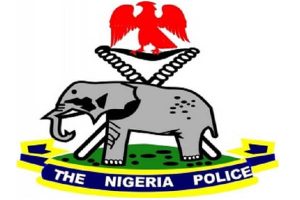The EFCC and Its real role in Nigeria
4 min read
By Nabil Brown
Chantilly, Northern Virginia
Declarations and platitudes notwithstanding, it ought to be clear to every discerning mind that the Economic and Financial Crimes Commission (EFCC) is nothing but a veritable instrument for controlling competition for political power in Nigeria. The real problem is that it does it unfairly, unjustly and unlawfully, in a manner to favor the presidency at any given point in time, or whichever individuals or groups have captured the Presidency. Also, somewhat, EFCC powers go towards enriching its key officers.
Conceptually and institutionally, the EFCC seems to been specially designed for suppression of fair and truly democratic competition for political power. For instance, it is odd that an important agency of government such as the EFCC should be accountable only to the Presidency. The constitutional or statutory requirement that the Senate confirm the appointment of the Chairman of the EFCC has been rubbished by the current administration. This conclusion is inevitable in that this administration kept Mr. Ibrahim Magu in office as the Chairman of the EFCC for over four years since the Senate declined to confirm his appointments.
Indeed, the constitutional or statutory design for accountability as regards the EFCC includes the requirement of senatorial confirmation of the appointment of the head of the agency. The Nigerian Senate rejected Magu three times. Yet he remains in office. In fact, the Presidency has totally dispensed with any further effort to get Mr. Magu confirmed by the Senate as required by law. The implication for accountability is chilling. The legitimacy and validity of the EFCC leadership are in doubt. The EFCC has now been encouraged by this administration not to care about what the Nigerian people think, since it is no longer amenable to the country’s legislature, as intended by law.
Additional accountability standards would have been through normal judicial review of the actions of the EFCC. But as has seen in recent time, the EFCC has eroded the independence of the judiciary and the authorities of the court. This was exactly the reason given recently by two United States Senators for initially opposing the return of money recovered from General Abacha’s bank accounts in the United States.
The persecution of some judges by the EFCC has been rampant and well noted. Most egregious in this category of emasculating judicial control is to be found in the role EFCC played in the controversial removal of Chief Justice Walter Onnoghen early last year, timely enough to have a preferred judge as the head of the judiciary ahead of the season for electoral petitions.
EFCC performs this function of political control on multiple levels and in three distinct ways. As shown above, it made sure that it disengaged every intended constitutional or statutory standards of accountability. It escaped legislative oversight and it escaped judicial review by helping to erode the independence of the judiciary.
Further, there is no clear accountability for EFCC financing. That agency is essentially on its own. It seizes assets of suspects and excludes these assets from judicial control through the adjudicatory process, and never accounts for them.
The commission further aims its controlling influence on three distinct groups. First, it targets people of minority ethnic groups and people of certain religion for the harshest expression of its authority. In a country where the competition for political power has strong ethnic and religious coloration, the EFCC has been the best weapon in the hands of the Presidency to fix political outcomes. It is not a surprise therefore that for twenty years of its existence, the EFCC has been headed only by people of one ethnicity and one religion in a country of diversity.
Further, the EFCC has been a weapon used against opposition politicians, whether we are looking at Obasanjo’s era when the EFCC was used to engineer several unconstitutional impeachments of the opposition governors, or more recently, when the threat of EFCC investigations were used to force opposition politicians to switch parties, or even in situations where the threat of investigation or promise of withdrawal of pending prosecutions was used to control elections for the principal offices of the National Assembly. The EFCC is always the weapon of choice for such political control.
It is in this context that one must analyze the record of the EFCC over time.
Finally, almost all the politicians jailed pursuant to the EFCC prosecutions or currently being hounded from pillar to post by the EDCC are perceived obstacles to someone’s ambition in the 2023 elections. Senator Orji Kalu’s Presidential ambition has been well known and quite credible, and a deal was cut to make sure he was convicted in clearly questionable circumstances. They even went further to attempt to dismantle and decimate Kalu’s financial empire to ensure that he would never recover his political clout. Governor Joshua Dariye (a Christian) has always been in one opposition political camp or the other. Governor Jolly Nyame (another Christian) is a strong political leader of North-Eastern Christians. Chief Olisa Metuh’s court and media trials are well known as well. President Jonathan is now being hounded on account of his rumoured presidential ambition. The lawyers and relatives of Alhaji Atiku (leader of the opposition), are being harassed in the courts.
In contrast, no known associate or major supporter of Tinubu is being chased around by EFCC. And this is likely because Tinubu, as the leader of the ruling party, has captured the presidency and could leverage that influence over the EFCC. As much as expected, the EFCC seems to have become the covert campaign directorate for Tinubu’s 2023 presidential ambition, and every potential threat to that ambition is a fair game for the EFCC.




